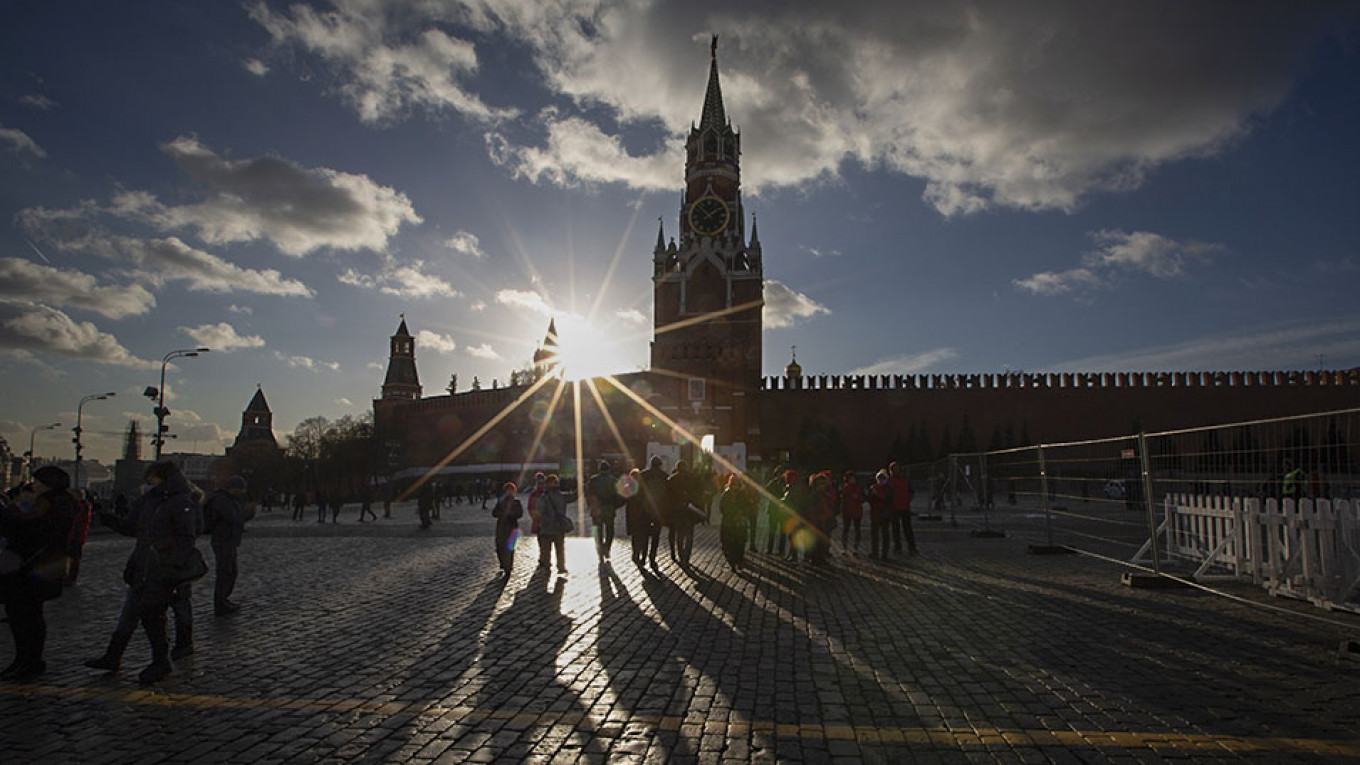It has become a trend in recent times for politicians, experts and journalists alike to sum up the outgoing year in international relations by noting the decrease in global governance and the growing instability of world politics. And 2019 is no exception. We have witnessed a number of surprises and unexpected events across the globe this year — from the landslide victory of Volodymyr Zelenskiy in the Ukrainian elections and the launch of impeachment proceedings against Donald Trump in the United States, to a series of political upheavals in Latin America and the never-ending political crisis in the United Kingdom, as well as numerous armed attacks on oil tankers in the Persian Gulf and wild oscillations in U.S.–China relations.
Russia's foreign policy has been an utter success compared to the chronic instability and volatility that has become characteristic of the international situation. Even Moscow's most ardent critics cannot deny that Russia has pursued a consistent foreign policy over the past calendar year. While many on the international stage may not see Russia as a convenient partner, it certainly cannot be accused of being unreliable or inconsistent in this capacity. This is an indisputable advantage that Russia enjoys over some of the other great powers and, as such, it is respected not only by the country's friends and allies, but also by its enemies and opponents.
All things considered, we can expect the global system to become even more unstable in 2020. I would, of course, like to be wrong here, but the energy produced by the collapse of the old system of international relations has not yet entirely dissipated. The chain reaction of disintegration that it has caused is unlikely to be arrested any time soon. We are not talking about a year or two of diligent work here, but rather about a long-term historical undertaking — a challenge that needs to be met not by a single state or group of leading powers, but by the entire international community, which for various reasons is still poorly equipped to deal with the problem.
Under these conditions, the temptation may naturally arise for Russia to minimize its participation in international affairs, isolate itself from the unpredictable and dangerous outside world and focus on solving problems at home. The reluctance to “import this instability” and become involuntary hostages to those negative processes and trends in world politics that neither we nor anyone else can control is quite understandable. Also understandable is the public’s demand that the authorities focus on problems at home – and, sad as it may be, we have more than enough of these.
However, the strategy of self-isolation, even if only temporary and partial, is dangerous in at least two ways. First, consistent self-isolation is virtually impossible in the modern, interconnected world (North Korea is a very rare exception here). Russia is deeply integrated into global political, economic and social processes, and any attempts to isolate itself will inevitably mean abandoning many of the country's most significant foreign political achievements over the past 30 years. Moreover, isolation would considerably slow down the process of solving those domestic problems that require the most attention.
Second, the strategy of self-isolation would effectively involve Russia withdrawing from active participation in the creation of a new system of international relations and the construction of the new world order. And a new world order will be created regardless. The only question is the price that humanity will have to pay for it. When the era of instability is over and a form of global governance has been restored, Russia will have to play by rules that have been developed by somebody else — rules that ignore Russia’s interests and serve those of other participants in global politics.
For this reason, Russia’s foreign policy in the coming year should not be directed exclusively at resolving immediate tasks in various regions of the world, although these tasks certainly are important. Equally important is the development of new principles, models and mechanisms of international cooperation for the future. Figuratively speaking, while it may still be too early right now to start the construction of the building that will house the new world order, it is both possible and necessary to start picking out individual "bricks" and even entire building blocks of this future building today. This is a difficult task, but Russian foreign policy has already made some inroads in this respect.
For example, Russia has gained unparalleled experience in multilateral diplomacy in Syria that has enabled the country to align the positions of the most bitter of adversaries and reduce the intensity of armed hostilities. In Syria, Russia has managed to achieve what many people until recently believed was simply unachievable. It is clearly worth trying to expand this practice to the Middle East as a whole in the coming year. The region sorely needs a collective security system, and a concept developed and fleshed out by the Russian side could be just the ticket.
In Asia, Russia and its partners have taken serious steps towards the construction of a fundamentally new, democratic and transparent system of international institutions. Recent achievements include the expansion of the Shanghai Cooperation Organisation, the promotion of the BRICS+ concept, the advancement of the RIC (Russia, India and China) format, and the progress made in work to combine the Eurasian Economic Union (EAEU) and the Chinese Belt and Road Initiative. It is particularly relevant here to fill new institutional formats with real content. Russia will have the chance to solidify its leading role in expanding the “project portfolios” of BRICS and the SCO when it hosts their annual summits in 2020.
Russia–China relations are steadily becoming a driving force in the system of international relations. The further coordination of their actions on the international stage, including the security domain, will continue to strengthen their authority and influence in world affairs.
As for Moscow’s policies on the European front, while 2019 was not a breakthrough year in terms of improving relations with the EU, certain positives can be gleaned. Russia was welcomed back to the Parliamentary Assembly of the Council of Europe (PACE). Russia and the West managed to agree on a common strategy to regulate the political crisis in Moldova. The Normandy contact group on the resolution of the situation in Donbass resumed its work after a long break. And trilateral talks between Russia, Ukraine and the European Union on energy issues started to move forward.
Europe has started to re-examine its model of regional integration fundamentally, and not only because of the United Kingdom's impending withdrawal from the European Union. The continent also has deep-seated problems related to socioeconomic development, regionalization, security, etc. In this context, serious political dialogue on the future of relations between Russia and Europe is an absolute necessity. And this dialogue needs to be started now, without delay.
The 2020 election campaign in the United States is in full swing, so now is not the best time to try to start fixing relations. However, those who insist that Moscow should take a break in these relations until after the election, hoping that the United States will somehow emerge from the deep political crisis that split the nation three years ago, are simply wrong. History has taught us that we can spend our entire lives waiting for the "right moment," and there will always be plenty of excuses to extend this break. Contacts with the Executive Branch of the United States are indeed objectively difficult at the moment, which means that Russia needs to step up its activities along other lines, including in terms of its Track II diplomacy.
A breakthrough was made in relations with Africa in 2019. The Russia–Africa Summit in Sochi demonstrated that there is interest on both sides in developing cooperation and that this cooperation holds great potential. The main thing now is to ensure that this momentum is not lost, which means that practical steps must be taken in 2020.
These are just some of the problems that Russian foreign policy will come up against in 2020. Russia has already demonstrated effective crisis management skills and has proven that it can cope with the most serious challenges of regional and global security today. Now it has the opportunity to show that it is also an experienced design engineer who is ready, alongside its partners, to develop individual components and entire nodes of the mechanism of the new world order that is still under construction.
Next year will mark the 75th anniversary of the end of World War II. Looking back, it is essential to note that those who emerged victorious in 1945 were, despite their deep-seated dissent on the most fundamental issues of global development, nevertheless able to agree not only on the rules of the game on the world stage, but also on the creation of an entire system of international institutions to guarantee global and regional stability. And, despite its many shortcomings and imperfections, this system has served humanity for decades.
Today, the international community faces challenges that are comparable in scale to those it faced in the middle of the 20th century. I would like to hope that, like their great predecessors, the politicians of today will realize their historical responsibility and demonstrate political savvy to resolve the most pressing issues of our time.
A Message from The Moscow Times:
Dear readers,
We are facing unprecedented challenges. Russia's Prosecutor General's Office has designated The Moscow Times as an "undesirable" organization, criminalizing our work and putting our staff at risk of prosecution. This follows our earlier unjust labeling as a "foreign agent."
These actions are direct attempts to silence independent journalism in Russia. The authorities claim our work "discredits the decisions of the Russian leadership." We see things differently: we strive to provide accurate, unbiased reporting on Russia.
We, the journalists of The Moscow Times, refuse to be silenced. But to continue our work, we need your help.
Your support, no matter how small, makes a world of difference. If you can, please support us monthly starting from just $2. It's quick to set up, and every contribution makes a significant impact.
By supporting The Moscow Times, you're defending open, independent journalism in the face of repression. Thank you for standing with us.
Remind me later.








